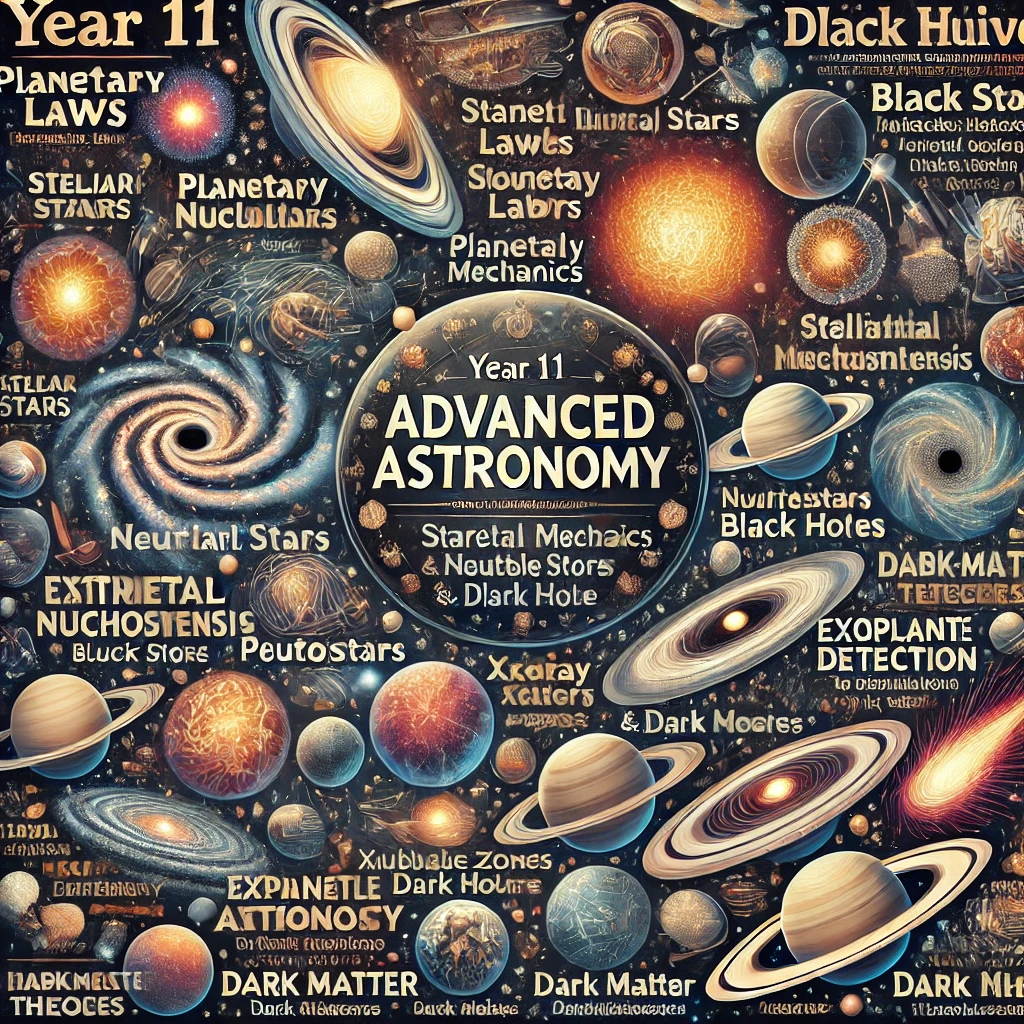Advanced Astronomy: Year 11

About Course
Course Overview: Embark on an advanced exploration of the universe in this Year 11 Astronomy course. Delve into complex astrophysical phenomena, study the latest cosmological theories, and engage in in-depth research projects to expand your understanding of the cosmos.
Course Content
Lesson 1: Kepler’s Laws and Planetary Orbits
-
Lesson 1: Kepler’s Laws and Planetary Orbits
Lesson 2: Orbital Mechanics and Gravitational Interactions
Lesson 3: Stellar Nucleosynthesis and Supernova Types
Lesson 4: Neutron Stars, Pulsars, and Black Holes
Lesson 5: Exoplanet Detection Techniques
Lesson 6: Habitable Zone and Biosignatures
Lesson 7: X-ray Astronomy and High-Energy Processes
Lesson 8: Active Galactic Nuclei and Quasars
Lesson 9: The Expanding Universe and Hubble’s Law
Lesson 10: Dark Matter, Dark Energy, and Multiverse Theories
Lesson 11: Radio Astronomy and Interferometry
Lesson 12: Adaptive Optics and Space-Based Observatories
Lesson 13: Proposal and Research Methodology
Lesson 14: Dissertation Writing and Presentation
Student Ratings & Reviews

No Review Yet